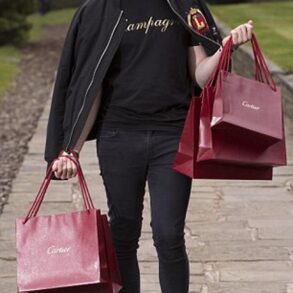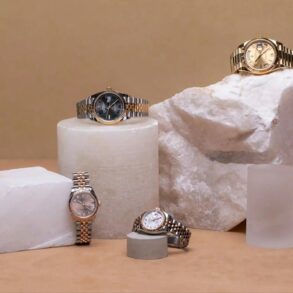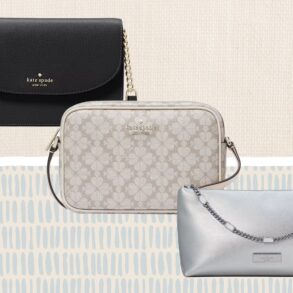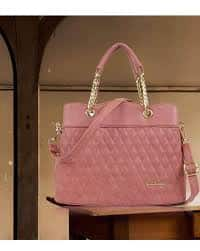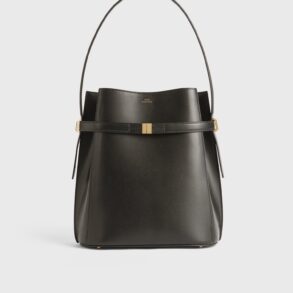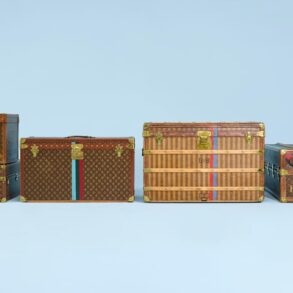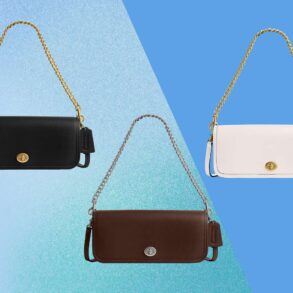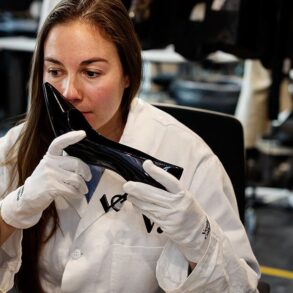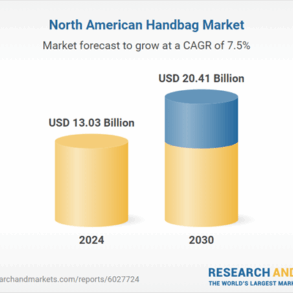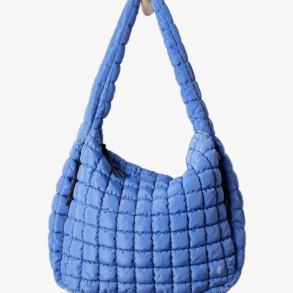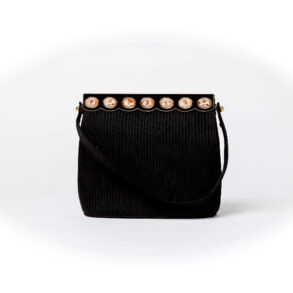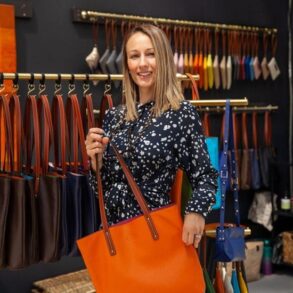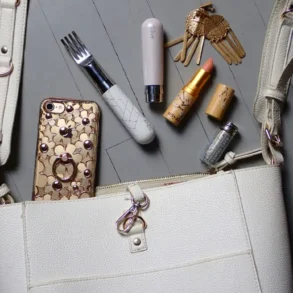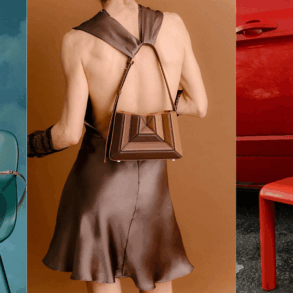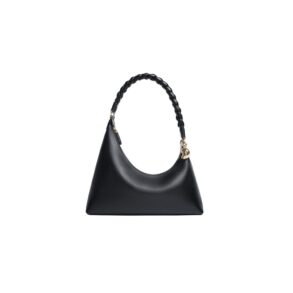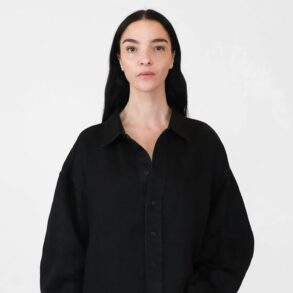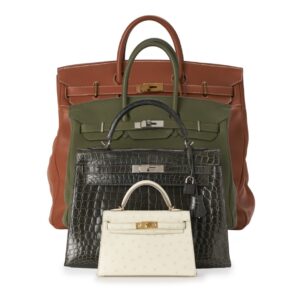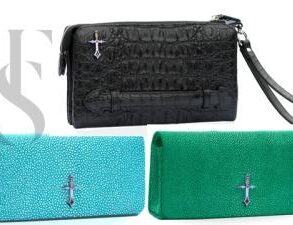
How Jenny Lei Turned a $30,000 Investment into a $9 Million Handbag Empire
In the world of luxury fashion, success is often measured in decades of brand history, multi-million dollar advertising campaigns, and global recognition. But Jenny Lei, the 28-year-old CEO and founder of Freja, a New York-based handbag brand, defied the odds and built a $9 million business in just four years. Her story is a testament to the power of innovation, persistence, and staying true to your values.
Freja, a luxury handbag company known for its minimalist design and commitment to sustainability, has grown exponentially since its inception. Despite facing fierce competition in the crowded fashion industry, Lei’s focus on quality, eco-consciousness, and loyal customer relationships has enabled her brand to thrive, generating millions in revenue annually.
This article dives into how Jenny Lei, with no prior fashion experience, launched Freja from her living room, endured early setbacks, and ultimately built a thriving business that’s on track to generate $12 million in annual revenue in 2024.
A Humble Beginning: The Spark of an Idea
The seeds of Freja’s creation were planted in February 2019 when Jenny Lei was an unemployed graduate student at Cornell University. As she prepared for a job interview in New York, she found herself struggling to find the perfect work bag. She tried pairing several bags with her outfit, but none met her needs. One was too small, another lacked the organization she needed, and the third didn’t fit comfortably over her winter coat.
To Lei, this experience was more than just a minor inconvenience—it was a wake-up call. She realized that the perfect work bag didn’t exist. In that moment, Lei envisioned a bag that would not only look stylish but also be functional enough to accommodate a laptop, a portfolio, and other work essentials. It would be a bag that could seamlessly transition from professional settings to casual outings.
Motivated by her dissatisfaction with the available options, Lei made the bold decision to create her own bag. She started sketching out designs and carefully considering the materials she would use. After months of conceptualizing and refining her ideas, Lei’s next step was to turn her design into a reality.
The Struggle: From Prototype to Inventory
With $300,000 in savings from a purse dropshipping side hustle she had run during graduate school, Lei invested in the creation of a prototype. She spent $2,000 on a sample made in Brooklyn, but when the result arrived, it wasn’t what she had envisioned. The bag looked far from the sleek, sophisticated design she had imagined—it was more like a “kindergartener’s art project,” Lei admits.
Determined not to give up, Lei traveled to Guangzhou, China, where she toured several factories specializing in vegan leather. She carefully chose a manufacturer that not only used high-quality materials but also maintained transparent and ethical working conditions. “As a Chinese person, I wanted Freja to kind of be my way of showing the world this is what ‘Made in China’ can look like,” Lei says, emphasizing her desire to create a brand that reflected her values.
After selecting the right factory, Lei ordered an initial batch of 300 bags, created a website, and began promoting the brand on social media. She also wrote blog posts that outlined Freja’s values, such as its commitment to environmental sustainability and ethical manufacturing practices.
However, sales did not take off as Lei had hoped. It took an entire year to sell her initial inventory. “I was financially strained, and the pressure was mounting,” she recalls. Still, Lei refused to back down. She doubled her efforts by ordering a second run of inventory, which featured a second bag design, and continued to pour money into digital marketing and social media advertising.
The Breakthrough: Social Media Marketing and Word-of-Mouth Growth
Freja’s first two years were challenging, marked by slow sales, rising costs, and financial uncertainty. But Lei’s perseverance eventually paid off. In 2022, Freja finally saw a breakthrough when sales began to climb significantly. Through a combination of strategic social media ads and word-of-mouth referrals, Freja started generating traction among its target audience.
Lei’s marketing strategy heavily relied on social media platforms like Instagram, Facebook, and Pinterest, where she could engage directly with potential customers. Influencer partnerships and user-generated content also played a key role in spreading the word about Freja. Customers began to appreciate the brand’s minimalist yet functional design, as well as its commitment to sustainability—a factor that became increasingly important to consumers. By 2022, Freja was able to reach $1.7 million in revenue.
However, Lei’s journey wasn’t just about sales numbers; it was about building a community. She wasn’t just selling bags—she was creating a lifestyle brand that resonated with her audience’s values. Freja’s focus on eco-friendly vegan leather and transparent production processes allowed the brand to stand out in a market flooded with traditional luxury brands. The bags were more than just a product; they were a symbol of the customer’s commitment to sustainability and conscious consumerism.
Rapid Growth and Expansion
By 2023, Freja’s momentum continued to grow, reaching $5.3 million in annual revenue. This rapid growth allowed the company to become cash-flow positive, which meant that Lei could pay off loans from Shopify and reinvest the profits into expanding Freja’s range of products. Lei introduced new bag designs, hoping to broaden the brand’s appeal beyond environmentally conscious working women.
Freja’s expansion didn’t stop with new designs. Lei also sought to diversify her product offerings and improve customer engagement through various initiatives, including exclusive events, pop-up shops, and a mentorship program for young women entrepreneurs. By 2024, Freja is on track to achieve $12 million in annual revenue, a remarkable accomplishment for a brand that started in a living room with a handful of unsold bags.
But the competition remains fierce. The global luxury handbag market is valued at $22.8 billion, and the industry is dominated by well-established brands like Louis Vuitton, Dior, Chanel, and Gucci, whose combined global presence is virtually unmatched. However, Lei’s ability to build a loyal following of customers who align with Freja’s values has allowed the brand to carve out a niche in this competitive space.
Katie Weir, a consumer and luxury industry strategist at Deloitte, notes that startups in the luxury sector face immense challenges. “Staying relevant over time is really, really hard, particularly in this space,” Weir says. “Companies that succeed are constantly evolving to meet consumer desires and market trends.”
Freja’s ability to adapt to consumer needs and stay ahead of trends, while remaining true to its core values, has been key to its success. Lei has made a conscious effort to evolve Freja’s designs and expand its product line to capture new audiences, ensuring the brand remains fresh and relevant.
Sustainability: A Core Pillar of Freja’s Success
One of the cornerstones of Freja’s appeal is its unwavering commitment to sustainability. In an era where consumers are increasingly prioritizing ethical fashion, Freja has stood out by using vegan leather, ensuring transparency in its supply chain, and committing to eco-friendly production practices. This commitment to sustainability has garnered Freja a loyal following among environmentally conscious consumers who are willing to invest in products that align with their values.
As Freja expands, Lei plans to further enhance the brand’s sustainability practices. She sees it not only as a market differentiator but as a long-term strategy to build a brand that is trusted by its customers and respected within the industry.
Future Outlook: A $12 Million Brand and Beyond
Looking ahead, Jenny Lei’s ambitions for Freja remain as bold as ever. She is focused on continuing the brand’s rapid growth trajectory by expanding its product offerings and deepening relationships with customers. “I want Freja to be a community, not just a brand,” she says. To do this, she plans to host more events, collaborate with influencers, and mentor young women entrepreneurs, all while expanding Freja’s commitment to sustainability.
Despite her success, Lei remains humble and motivated by the idea of helping others. “One thing I kept telling myself was, ‘No one is born a designer,’” Lei says. “But I can become one in a couple of years if I give it a go.” With this mindset, Freja’s future is as promising as ever.
Related: From Side Hustles to Global Success
Key Takeaways for Aspiring Entrepreneurs
Jenny Lei’s journey from a graduate student with a side hustle to the CEO of a $9 million business offers several important lessons for aspiring entrepreneurs:
- Identify a Gap in the Market: Lei’s journey began with the realization that there was a lack of functional yet stylish work bags on the market. By addressing this gap, she created a product that met an unmet need.
- Persistence and Resilience: Freja’s first two years were filled with setbacks, but Lei’s perseverance and adaptability eventually paid off. The ability to bounce back from failure is crucial for any entrepreneur.
- Leverage Social Media: In today’s digital landscape, social media is one of the most powerful tools for building brand awareness. Lei used Instagram and Facebook to connect with her target audience and build a loyal customer base.
- Build a Brand with Purpose: Freja’s commitment to sustainability and ethical production resonated with consumers who were looking for brands that aligned with their values. Having a strong brand ethos can help differentiate you in a crowded market.
- Adapt and Evolve: The fashion industry is fast-paced, and staying relevant requires constant innovation. Freja’s ability to expand its product range and adjust to shifting consumer preferences has been a key factor in its success.
By combining creativity, persistence, and a commitment to sustainability, Jenny Lei has proven that with the right mindset and strategy, it’s possible to build a thriving business—even in one of the most competitive industries in the world.
As Freja looks ahead to even greater success in 2024, one thing is clear: Jenny Lei’s journey is far from over, and the future of Freja is poised for even greater milestones.
This post was originally published on this site be sure to check out more of their content.




